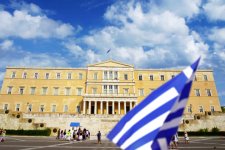mj_toronto8
Active member
Hi guys! What is the significance of Greek Independence Day (March 25)?
Follow along with the video below to see how to install our site as a web app on your home screen.
Note: This feature may not be available in some browsers.

It states the start of the revolution against the dominance of Ottoman empire. This is not the exact date that started, they chosed this date to coincide with the great chistianic holiday of Eyaggelismoy tis Theotokou. It is not an intependence Day, it is the 'revolution start'Independence day celebrates the separation of Greece from the Ottoman empire. Greece was struggling for over 400 years to gain independence, and finally in 1821 they became an independent state.
Hi guys! What is the significance of Greek Independence Day (March 25)?

